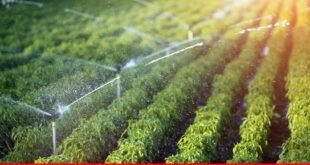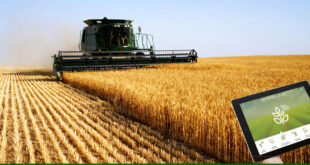For over 6 million Pakistani smallholders with 10 acres of land or less, financing options are very limited and preventing them from building assets over time. Most cannot or will not go to banks because doing so would require using land as collateral, repaying loans in strict monthly installments and paying penalties if payments are late. Moreover, it can be hard to find a bank close to home and, once there, the queues can be long and approvals are lengthy process. Microfinance institutions may offer the option to pay back a loan in lump sum, but amounts are deemed too small for significant investment.
Instead, farmers are left with no option than to resort to the services of Arthis (middlemen/agents who have long responded to their agricultural and personal financial needs). This informal system has been passed on from one generation to the next, often placing farmers in a vicious cycle of perpetual debt. Arthis directly provide farmers with seeds and fertilizers, and collect the equivalent amount in crops at harvest time. The daily market rate prevails at settlement, which is right after harvest when prices are at their lowest. The Arthis will store and then sell the crops a few weeks later, when market prices have risen by 25% to 30%. Shortly afterward, when the next crop’s seeds, fertilizer, pesticides and other inputs are needed, the farmer often does not have enough liquidity to cover it and his family’s household needs. As a result, he reverts to the Arthi for another round of financing. According to some estimates, Arthis finance at least 50% of smallholders in Pakistan.
Since 2009, farmers in Punjab have had another financing option called Salam, which seeks to give them a bigger role in the decision-making. Salam contracts reflect Islamic principles because they are investing in a productive activity, and the funder is taking a risk in the business. Salam products are particularly relevant for the rural poor, one of the largest segments of the unserved.
Salam is essentially a sales contract with deferred delivery of goods often used in agriculture as advance payment against future delivery of a crop yield, allowing farmers to finance the advance purchase of inputs to be used in crop production. The type of crop, amount, and delivery date of the expected crop yield is agreed to in advance. The benefits of Salam financing are sufficient to allow farmers to build assets and sustain themselves above the poverty line within five financing cycles, or roughly three years.
For now, Salam is only offered for wheat and rice, because of their relatively predictable price and easy storage.
Several factors affect the success of Salam in Pakistan:
1. The available storage facility (silos) should be adapted to the type of crop financed. For instance, wheat is easy to store, rice has to be dried before storage, cotton requires tight control over humidity levels, etc.
2. Financing a commodity through an advance purchase agreement is sustainable for a provider when prices are either stable or trending upward, which is the case of wheat in Pakistan thanks to government crop support. But a decrease in the crops’ price at harvest time could leave the financier with significant losses.
3. Smallholders may be tempted to sell their crops directly on the open market at harvest time if prices are more attractive than the pre-agreed contractual price.
4. Crops should be protected from damage and hazards, before and after harvest, with the farmers benefiting from crop insurance and the financier from inventory insurance.
5. Scaling-up requires significant upfront investment in working capital and storage facilities.
6. Legal requirements should be well understood in terms of obtaining special licenses to store crops or to move them from one district to another.
 PAGE Blog Business Weekly Magazine
PAGE Blog Business Weekly Magazine

